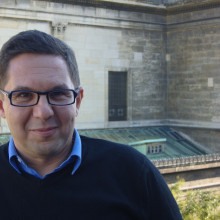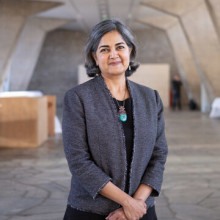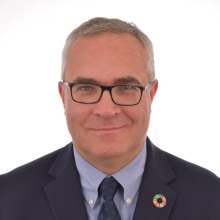
The wisdom of civilizations
How can lessons of the past illuminate our urban present and provide solutions for an uncertain future?
This special session is co-curated with:
- Legacy – The Operator of the Grand Egyptian Museum
Summary
Urban history can be traced back to humanity’s earliest settlements. Indeed, civilisations of the past arose alongside urbanization. Cities of the past faced challenges that reverberate in the present and hold lessons for the future. These urban settlements developed resilient urban governance solutions to protect their territories, deal with natural disasters, combat destructive pandemics and adapt to demographic bonanza. A circularity of livelihood routines/daily life enabled them to overcome conflicts, climate change, challenges of sustenance and resources, and allowed them to create stability, social cohesion and foster economic growth.
The study of urban history holds the promise of learning from cities of the past. By integrating these lessons into modern governance and urban planning, we can build more sustainable, resilient cities. These lessons are crucial for our urban future—are we ready to listen?
If we look closely, we may realise that the past is nearer than we think. Present-day urban landscapes stand on top of layers of economic, political, social and environmental dimensions built over millennia, reflecting both the triumphs and challenges societies have faced. Cities are crucial wardens of humanity’s history too, preserving rich historical heritage.
Given that WUF12 will be held in Cairo, Egypt—a city that is home to one of the world's oldest and best documented civilisations as well as a contemporary, bustling megalopolis—this special session offers a unique opportunity to delve into the past and gain problem-solving insight about practical contemporary urban problems through the lens of history. This Special Session’s participants will blend historical insights with modern narratives to explore how the governance of socio-economic, political and environmental challenges faced by today's society were also encountered by ancient cities and civilisations. Attendees will uncover multifaceted stories of resilient urban structures drawn from some of the world’s most enduring early human civilisations and settlements.
Session Highlights
This session will explore the deep interconnection between power, urban governance, circularity and their manifestation in urban structures that continue to shape modern societies.
Participants will be invited on a virtual reality tour of the future, to encourage discussions on solution-oriented governance models and their potential to analyse and forecast future societal challenges.
Through creative dialogues with academics, city leaders and practitioners in urban history, economics, architecture and development, this session will trace the story of how civilisations have thrived and succumbed over millennia, offering insights on how to navigate the challenges of the future.
Learning from the past by reflecting on a common unit of a settlement, the ‘farmer’; and how agriculture and associated technologies are key to mitigating climate challenges.
Key Messages
Cities of the past confronted problems that are similar to the challenges of our present and future.
History is a wellspring of lessons on urban governance which can inspire solutions for resilient urban governance of present and future cities.
Standing atop of layers of history, cities have a special duty to preserve their historic heritage.
Cultural institutions are vital hubs for the creation and preservation of wisdom.
The combination of traditional methodologies with modern technologies can enable sustainability.
Guiding Questions
What ancient principles of architecture, governance, urban planning, resource management, among others, provide insight on current-day issues and enable avoidance of future catastrophes – thus securing a more sustainable future?
How did international forces such as colonialism, imperialism, global trade, etcetera, historically influence the growth and decline of cities? How does this compare with the present?
How can cultural institutions effectively transfer the wisdom of past civilisations to the present and future?
This session is co-curated with
Legacy – The Operator of the Grand Egyptian Museum

 Streaming on UN WEB TV
Streaming on UN WEB TV



